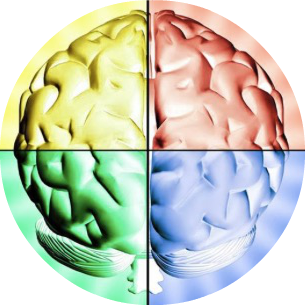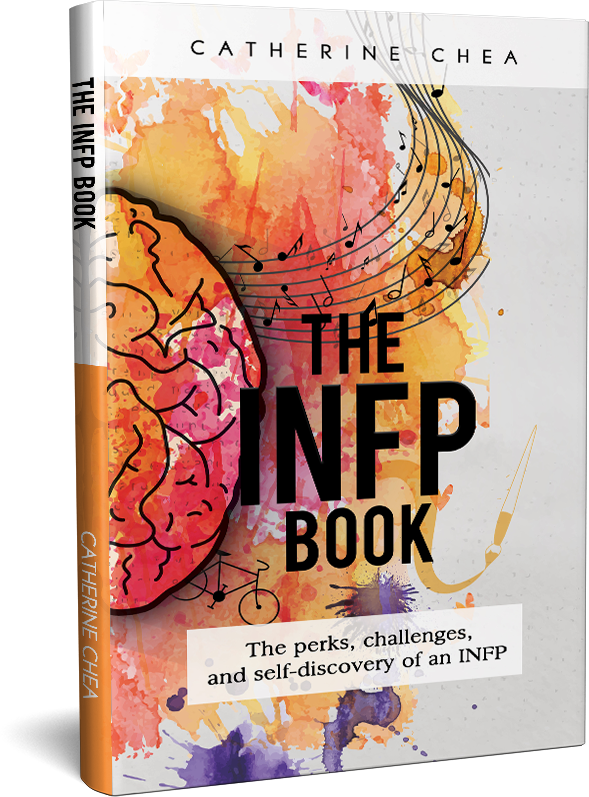5 Struggles You’ll Relate to If You’re an Intuitive Introvert

Intuitive introverts (i.e. INTJs, INTPs, INFJs, and INFPs) in the Myers-Briggs personality system are often depicted as intellectuals and deep thinkers. They prefer to think abstractly and spend a lot of time in their inner world, analyzing ideas and looking for patterns. Many renowned thinkers who have changed history — such as Gandhi, Einstein, and Shakespeare — are thought to have been intuitive introverts. Although it seems great to be an introverted intuitive, in reality, it’s not always easy. The truth is, most of us are “ordinary” people, and we run into a lot of problems associated with our “gifts.”
Are you an intuitive introvert? Here are five struggles you can probably relate to:
1. Turning our ideas into reality
For us, it’s a fun, exciting mental exercise to think of new ideas. But in reality, implementing those ideas is a lot harder. This is because we often spend so much time in our heads instead of taking action. The Nike “just do it” motto is not something that resonates with many of us. We prefer to spend our time contemplating, and when we do take action, we want it to be purposeful and aligned with our ideals. On top of this, it doesn’t help that our ideas can be quite removed from reality because they are abstract. So in the end, we have a lot of ideas that sit there, collecting dust, not serving a practical purpose. To overcome this, instead of always focusing on the big picture, we need to learn how to focus on the small steps that will help us achieve our vision.
 What’s your personality type? Knowing your type can help you leverage your natural strengths. Take the free test from our partner Personality Hacker.
What’s your personality type? Knowing your type can help you leverage your natural strengths. Take the free test from our partner Personality Hacker.
2. Finding stimulating work
As idealists, it’s hard to find work that’s fulfilling. Reality forces us to focus on the details of daily necessities, such as picking up groceries and thinking about what to wear the next day to work or school. Also, as intuitives, we want to be mentally stimulated and intellectually challenged, ideally so that we’re constantly learning and growing. Repetitive tasks that serve little purpose — like answering emails, filling out reports, or other mundane tasks — stifle us. We crave work that engenders a profound sense of meaning and freedom, where we have the autonomy to implement our own ideas.
3. Not living in the moment
As introverts and idealists, we may get so lost in our thoughts that we forget to come back to earth. Sometimes we need to be reminded to enjoy the simple pleasures in life, such as savoring a good meal, going for a walk in nature, or simply paying attention to what’s happening in our immediate environment. The Book of Awesome, by Neil Pasricha, has many great examples of the little joys in life that are often overlooked. Getting out of our heads can help put an end to the stress that comes with negative overthinking — as well makes sure we don’t walk into a puddle or bump into people because we’re so busy contemplating.
4. Overanalyzing things
Instead of taking things at face value, many intuitive introverts analyze everything. This can make our brains run on overdrive, and in the end, we usually don’t even get the results we were hoping for. Whether we’re obsessively analyzing a social interaction or trying to rationalize our panicked thoughts, this analysis can prevent us from doing anything constructive. We can process lots of information with depth, which results in a tendency to overload more quickly than others. When this happens, we need to give ourselves a break and distance ourselves from our thoughts by doing something more physical and grounded. Try working out at the gym, going on a walk, or playing your favorite sport. Another way to prevent ourselves from overthinking is to assess whether or not the thing we’re worrying about really matters in the grand scheme of things.
5. Connecting with people
It can be a lonely existence to be an intuitive introvert. Many of us feel alienated because we struggle to find people who truly get us. We crave deep, meaningful and engaging conversations that are hard to come by, especially in this materialistic and superficial world — where reality shows and Justin Bieber dominate pop culture. And, because we’re introverts and we don’t socialize as frequently as our extroverted counterparts, we probably won’t go out of our way to find the right connections. Unlike many people, we probably don’t make connections by going to bars, clubs, and parties. We have our own unique way of finding friends, such as joining a Facebook group, becoming a member of a book club or meet-up group, where we can find like-minded individuals in a more intimate setting.
To learn more about being an INFP, check out my book.
Did you enjoy this article? Sign up for our newsletters to get more stories like this. ![]()
Read this: 10 Contradicting Things About INFPs

